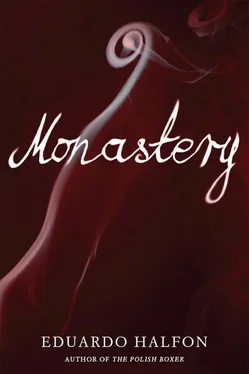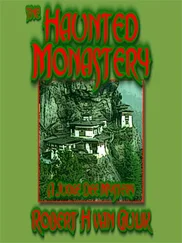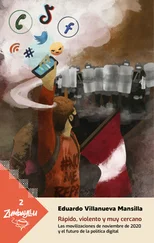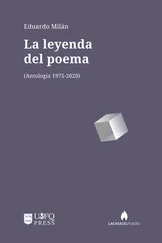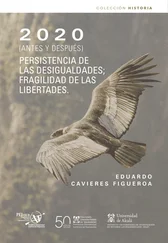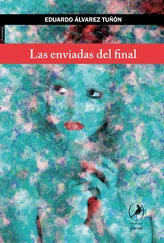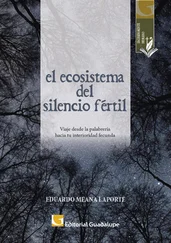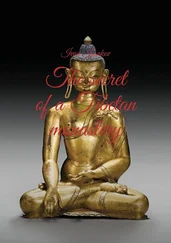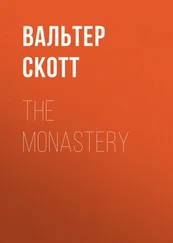Come on, she said, tugging me outside.
I was drinking café de ollafrom a rusty blue pewter cup. Doña Tomasa had put down a matching blue pewter kettle beside me, on the sandy ground of the shack. There were no tables or chairs. The palm-frond roof was already black and full of holes. What little breeze there was stank of rotten fish. But the café de olla was strong and sweet and helped to perk me up a bit, to loosen my legs from the two-hour drive to the port of Iztapa, on the Guatemalan Pacific coast. My back felt damp, my forehead sweaty and sticky. As the heat increased, it seemed, so too did the fetidness of the air. A scrawny dog was sniffing at the ground, in search of scraps or crumbs that might have fallen onto the sand. Two barefoot and shirtless children were trying to catch a gecko that chirped above, hidden amid the palm fronds. It was not yet eight in the morning.
Here you go, said Doña Tomasa, and she handed me a tortilla with cracklings and spicy chiltepe, wrapped in a sheet of newspaper. She leaned on one of the supports of the shack, rubbing her plump hands on her apron, burying and unburying her feet in the warm volcanic sand. She had salt-and-pepper hair, a leathery complexion, a slightly cross-eyed gaze. She asked where I was from. I finished chewing a mouthful, my tongue stunned by the chiltepe, and said I was Guatemalan, just like her. She smiled politely, perhaps suspiciously, perhaps thinking the same thing I was thinking, and turned her eyes up toward the cloudless sky. I don’t know why I always find it hard to convince people, to convince myself even, that I’m Guatemalan. I suppose they expect to see someone darker and squatter, someone who looks more like them, to hear someone whose Spanish sounds more tropical. And I never pass up any opportunity to distance myself from the country either, literally as well as literarily. I grew up abroad. I spend long stretches of time abroad. I write about it and describe it from abroad. As though I were a perpetual migrant. I blow smoke over my Guatemalan origins until they become dimmer and hazier. I feel no nostalgia, no loyalty, no patriotism — despite the fact that, as my Polish grandfather liked to say, the first song I learned to sing, age two, was the national anthem.
I finished the tortilla and the café de olla. Doña Tomasa, having taken my payment for breakfast, gave me directions to a patch of land where I could leave my car. There’s a sign, she said. Ask for Don Tulio, she added and walked off without saying good-bye, dragging her bare feet as though they were weighing her down and muttering something bitter, perhaps a little tune.
I lit a cigarette and decided to walk awhile along the Iztapa highway before returning to the car, a classic Saab, sapphire-colored, which a friend often loaned me for traveling around the country. I walked past a stall selling cashews and mangoes, an abandoned gas station, a group of dark-skinned men who stopped talking and just looked at me askance, as though resentful or perhaps bashful. The earth wasn’t earth but little bits of paper and wrappers and dry leaves and plastic bags and a few discarded green almonds, crushed and rotting. In the distance, a pig wouldn’t stop squealing. I kept walking, slowly, unconcerned, noticing a mulatta woman on the other side of the road who was too fat for her black-and-white-striped bikini, too chubby for her high heels. All of a sudden, I felt my foot touch something wet. Maybe because I was looking at the mulatta, I had stepped in a red puddle. I stopped. I looked left into a dark and narrow warehouse and saw that the floor was covered in sharks. Small sharks. Medium sharks. Blue sharks. Gray sharks. Brown sharks. Even a couple of hammerhead sharks. All of them seemed to be floating in a mire of brine and guts and blood and more sharks. The stench was almost unbearable. There was a girl on her knees. Her face shone with water or perhaps sweat. She had her hands deep inside a big gash in the white belly of a shark and was pulling out organs and entrails. In the back, another girl was rinsing down the floor with the weak stream of a hose. It was the fishermen’s cooperative, according to a badly painted placard on the wall. Every morning, I presumed, the fishermen of Iztapa brought their catch there and the two girls cleaned it and cut it up and sold it. I noticed that most of the sharks no longer had fins. I remembered having read somewhere about the international black market. They called it finning. I’ll have to be careful later, I thought, in the sea. It seemed to be a day for sharks.
I TOSSED THE CIGARETTE BUTT nowhere in particular and returned to the car, hurrying, almost running away from something. As I drove, I noticed that I had already started to lose the image of the sharks. It occurred to me that an image, any image, will inevitably start losing its clarity and its strength, even its coherence. I felt compelled to stop the car right there in the middle of the town and try to find a notebook and pencil and write it down, capture it, share it through words. But words are not sharks. Or maybe they are. Cicero said that if a man could go up to heaven and from there contemplate the whole universe, the wonder that such great beauty caused him would diminish if he had no one to share it with, no one to tell it to.
After a couple of kilometers on a dirt road, I finally found the sign Doña Tomasa had told me about. The land belonged to an indigenous family. The house was made of sheet metal, bricks, broken tiles, cinder blocks with exposed rusty rebar. There was a plot of maize and beans, a few palm trees looking grim and sad. There were chickens running free. A white goat was chewing the bark of a guava tree that it was tied to with a length of iron wire. Under a canopy, sprawled out on the ground, three young women were husking corn as they listened to an evangelist preaching on a small portable radio.
An old man approached, tanned and taciturn and still muscular despite his age. Don Tulio? I asked. At your service, he replied without looking at me. I explained that Doña Tomasa, the lady from the shack, had sent me. Right, he said, scratching his neck. A boy age five or six appeared and hid behind the old man’s legs. Your son? I asked, and Don Tulio whispered yes, the youngest. When I held out my hand, the boy lowered his gaze and blushed at such a grown-up gesture. I opened the trunk of the car and started to take out my things, and at that moment, as though rising up from an abyss, as though muffled by something, perhaps the dryness or the humidity or the already inclement sun, I heard a series of guttural cries. I fell silent. I heard more cries. Far away, behind the house, I caught sight of an older woman, whom I took to be Don Tulio’s wife or mother, helping a fat and half-naked young man as he lurched forward and fell on the floor like a drunk, kept crying out like a drunk, and headed straight toward us. He was struggling to walk toward us. He wanted something from us. The lady, using all her strength, was determined to stop him. I looked away, out of respect, or pity, or cowardice. Nobody else seemed very concerned.
Don Tulio said it was twenty quetzales, for the whole day. I took a bill out of my wallet and paid him, still hearing the young man wail. Don Tulio asked if I knew the way to the beach on foot, or if I wanted his son to accompany me. I was going to say that I didn’t know, thank you, when suddenly the young man shouted something that I couldn’t understand but that sounded coarse and painful, and Don Tulio immediately rushed off. The young man, now spread-eagle on the ground, was having spasms, as though epileptic. Finally, the old man and woman managed to drag him off and haul him around behind the house, out of sight.
Though they were quieter and more distant now, I could still hear the howls. I asked the boy what was happening, who the young man was, if he was ill or drunk or something worse. Kneeling down, playing with an earthworm, he ignored me. I put my things down on the ground and slowly, cautiously, headed toward the back of the house.
Читать дальше
